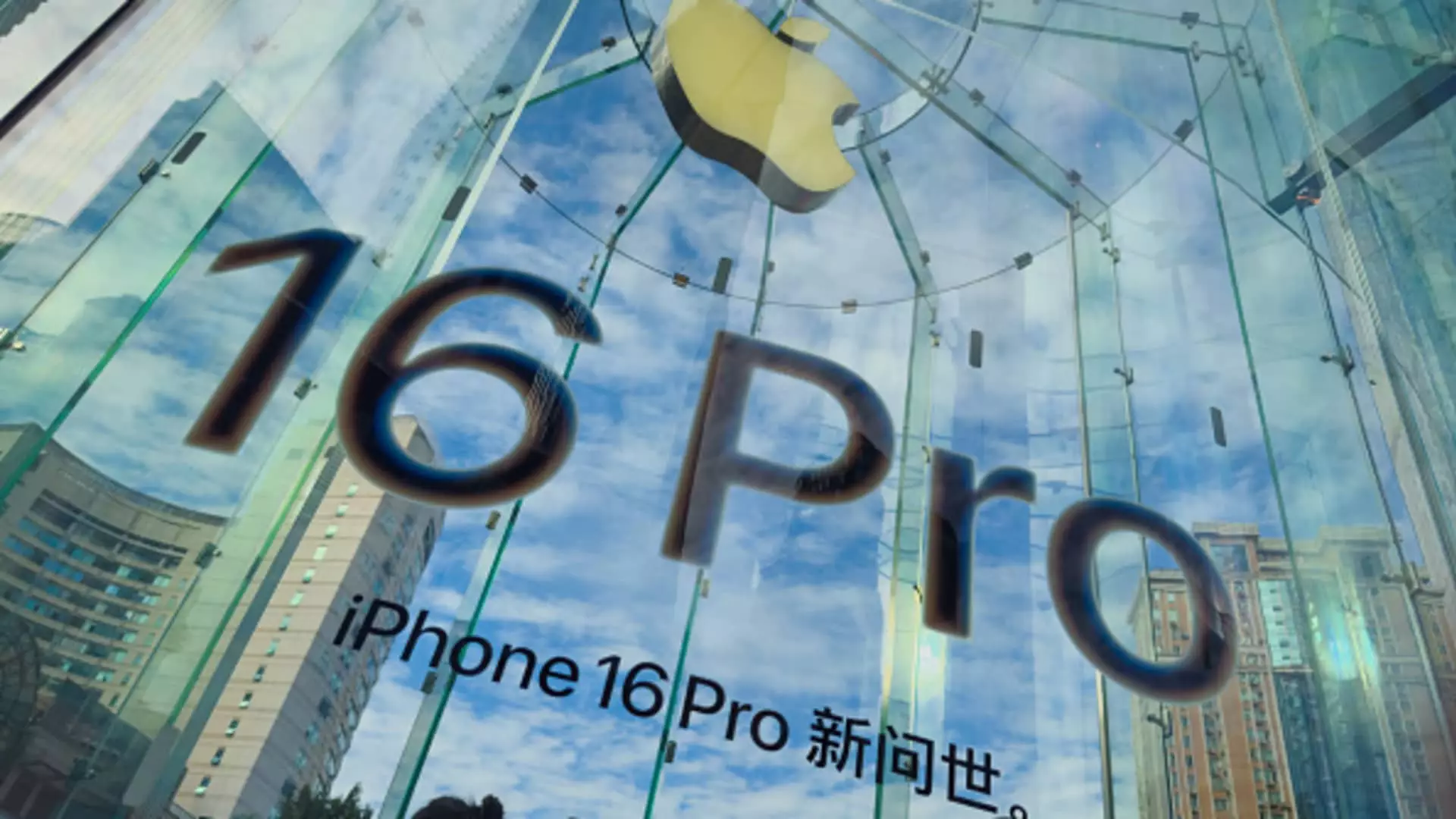Apple, a titan in the global tech industry, has recently announced a series of discounts on its high-end iPhone models in anticipation of the Chinese New Year. This move highlights the company’s strategy to maintain market relevance amid increasing competition, especially from domestic brands like Huawei. In a landscape traditionally characterized by its resistance to discounts, Apple’s current actions reveal not only a shift in its marketing strategy but also the complexities of navigating a competitive market.
In an effort to attract consumers during the Chinese New Year celebrations, Apple is offering significant price reductions on its flagship devices. Customers can benefit from discounts of 500 Chinese yuan (approximately $68.50) on the iPhone 16 Pro and Pro Max, and 400 yuan off the iPhone 16 and 16 Plus. Additionally, older models such as the iPhone 14 and iPhone 15 also feature in these promotional offers. Historically, Apple has been cautious about discounting its products directly, preferring to let third-party retailers handle seasonal sales. However, with intensifying competition from brands like Huawei, the tech giant has begun to adapt by implementing seasonal discounts directly within its retail channels.
The competitive landscape in China has dramatically shifted, with Apple reporting a 6% decline in smartphone shipments year-on-year during the third quarter of 2024, as per Canalys. This decline in sales has seen Apple’s market share drop to 14%, down from 16% the previous year. In stark contrast, Huawei has emerged as a formidable contender, boasting a 24% increase in shipments, which has catapulted its market share to 16%. This turnaround is particularly notable given Huawei’s struggles with U.S. sanctions that had limited its access to critical technology.
The resurgence of Huawei and its innovative product launches have played a significant role in altering consumer preferences. The introduction of its first trifold phone signifies Huawei’s commitment to showcasing advanced technology while reinvigorating its brand. As consumers become more open to exploring alternatives, Apple’s traditional allure begins to wane, necessitating a reevaluation of its sales strategies.
Apple’s recent discounts can be seen as an essential adaptation to a rapidly changing market. The promotional strategies employed during significant shopping events—like the Chinese New Year and the Chinese 618 shopping festival—indicate a broader trend of Apple leaning towards more aggressive marketing tactics. These initiatives are not merely to boost sales but are part of a larger strategy to retain consumer interest and loyalty in a fiercely competitive environment.
As Apple moves forward, its ability to balance product quality and brand prestige with the need for competitive pricing will be crucial. The company’s willingness to embrace discounts marks a noteworthy evolution in its marketing approach, reflecting both the challenges and opportunities that come with operating in a highly dynamic market like China.
While Apple continues to battle for its share of the market against resurgent competitors, its latest promotional strategies suggest an acknowledgment of the shifting dynamics in consumer behavior. By adapting its pricing tactics and strategically offering discounts, Apple is not just responding to immediate competition; it is also navigating the complexities of a landscape where innovation and consumer choice reign supreme.


Leave a Reply